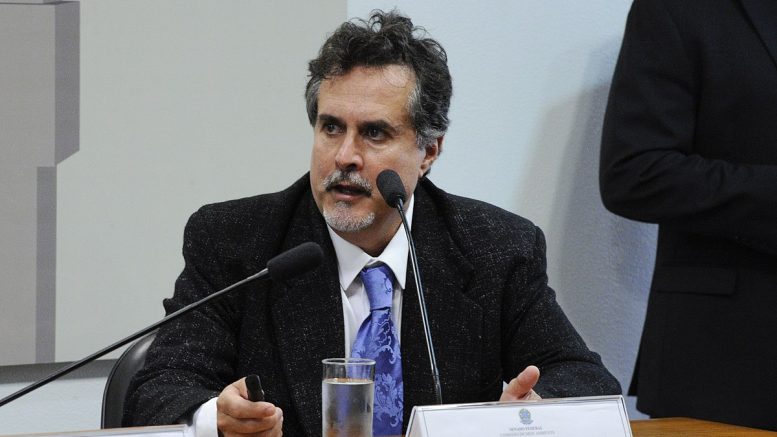“The Forest Code, in fact, does not protect the Amazon Forest from agricultural expansion…”
Britaldo Silveira Soares-Filho is an associate researcher at the Center for Remote Sensing at the Federal University of Minas Gerais – UFMG, and a permanent member of the faculty of the postgraduate program in Analysis and Modeling of Environmental Systems.
Soares-Filho has a degree in geology from UFMG, a M.Sc. from INPE and a Ph.D. from USP.
AgriBrasilis – How does the Brazilian Forest Code protect the Amazon from agricultural expansion?
Soares-Filho – The Forest Code, in fact, does not protect the Amazon Forest from agricultural expansion. What it does is protect the Amazon from illegal deforestation, that is, the deforestation which is not permitted by law, since the Code establishes that we need to preserve the legal reserve and the “APP” areas, which are the permanent preservation areas.
Obviously, for this to happen, there is a need for environmental inspection, which is difficult to do in such a vast region and in distant areas of the Amazon.
AgriBrasilis – Are agroforestry systems viable in the biome?
Soares-Filho – Yes, definitely. For example, the production of shaded cocoa today is expanding throughout the Amazon, which is cocoa planted under the shade of native trees. This is a form of agroforestry system.
AgriBrasilis – How can the traceability of agricultural products help to mitigate deforestation?
Soares-Filho – For example, this helps to exclude illegal slaughterhouses from agricultural chains by having traceability. We can have cattle traceability, soybean traceability. This is important so that Brazil can reach increasingly demanding markets. For example, the European Union recently approved regulations banning the import of agricultural products linked to deforestation.
So, it is very important for Brazil to develop these platforms. This way, our country takes the lead and this is a great business opportunity associated with the conservation of our biomes.
AgriBrasilis – How does the loss of forests affect grain production?
Soares-Filho – The reduction in forest area and native vegetation reduces the regional amount of rainfall. It also delays the start of the rainy season. It reduces the length of the agricultural rainy season and increases temperatures. As a result, it increases agricultural losses. This becomes more prominent, for example, during El Niño years, a condition in which the impact of drought already exists. These problems are made worse by climate change. Forest conservation is an ally of agribusiness, as it makes it possible to maintain crop yields.
AgriBrasilis – Does it make sense to farm grains in the Legal Amazon?
Soares-Filho – It depends. There are vast areas today in the State of Mato Grosso, Pará, Maranhão, occupied by soybeans and by the “double crop” of soybeans and corn. Whether this is the best way to develop sustainable agriculture in the Amazon is questionable.
There should be more sustainable alternatives from an environmental point of view. Even so, it is important to highlight that this grain production in the Legal Amazon is linked to the conservation of forests, which are essential to maintaining agribusiness productivity.
AgriBrasilis – Is it possible to achieve carbon balance in the Amazon?
Soares-Filho – If you refer to the carbon balance of the forest, that is, the Amazon forest, it operates as a “sink”, sequestering carbon, CO2 from the atmosphere, and synthesizing this carbon in terms of biomass, but it also emits this CO2 back due to degradation, due to forest deforestation.
It is important today that we first think about conservation, reducing deforestation and factors that degrade the forest, such as the large fires that affected the Amazon region in 2024. Obviously, we also have to work on mitigating global changes, which are increasing the degradation of the forest, causing more droughts and frequent and more intense fires.
READ MORE:

